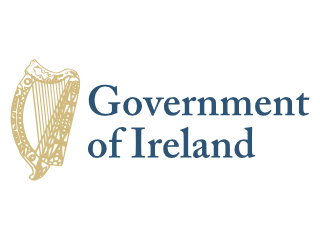Celtic tribes arrived on the island between 600 and 150 B.C. Invasions by Norsemen that began in the late 8th century were finally ended when King Brian BORU defeated the Danes in 1014. Norman invasions began in the 12th century and set off more than seven centuries of Anglo-Irish struggle marked by fierce rebellions and harsh repressions. The Irish famine of the mid-19th century saw the population of the island drop by one third through starvation and emigration. For more than a century after that the population of the island continued to fall only to begin growing again in the 1960s. Over the last 50 years, Ireland's high birthrate has made it demographically one of the youngest populations in the EU. The modern Irish state traces its origins to the failed 1916 Easter Monday Uprising that touched off several years of guerrilla warfare resulting in independence from the UK in 1921 for 26 southern counties; six northern (Ulster) counties remained part of the UK. Unresolved issues in Northern Ireland erupted into years of violence known as the "Troubles" that began in the 1960s. The Government of Ireland was part of a process along with the UK and US Governments that helped broker what is known as The Good Friday Agreement in Northern Ireland in 1998. This initiated a new phase of cooperation between the Irish and British Governments. Ireland was neutral in World War II and continues its policy of military neutrality. Ireland joined the European Community in 1973 and the euro-zone currency union in 1999. The economic boom years of the Celtic Tiger (1995-2007) saw rapid economic growth, which came to an abrupt end in 2008 with the meltdown of the Irish banking system. Today the economy is recovering, fueled by large and growing foreign direct investment, especially from US multi-nationals.
Ireland is a parliamentary republic.
Source: CIA World Factbook
Members:
Resources
Displaying 86 - 90 of 137Land Registration (Fees) Order 2012 (S.I. No. 380 of 2012).
This Order specifies in the Schedule fees to be charged and taken by the Property Registration Authority (established under section 9 of the Registration of Deeds and Title Act 2006) for a service provided in the Land Registry. No registration shall be made and no other transaction shall be done or completed until: (a) the appropriate fee has been paid to the Authority, or (b) the Authority is satisfied that arrangements for the payment of the appropriate fee have been made.
European Communities (National Emission Ceilings) Regulations 2004 (S.I. No. 10 of 2004).
These Regulations carry into effect in Ireland Directive 2001/81/EC by specifying national emission ceilings for sulphur dioxide, nitrogen oxides, volatile organic compounds and ammonia to be achieved by 2010. The Regulations provide for the preparation of a national strategy by the Environmental Protection Agency with the aim of complying with the ceilings and the preparation and reporting of annual national emission inventories and projections.
Land Purchase Acts Rules 2012 (No. 260 of 2012).
These Rules provide for revised fees for searching for and copying documents and maps of the former Irish Land Commission. The documents and maps are stored in the Records Branch of the Department of Agriculture, Food and the Marine.
Implements: Land Act, 2005 (No. 24 of 2005). (2005-10-26)
European Union (Environmental Impact Assessment and Habitats) Regulations 2012 (S.I. No. 246 of 2012).
These Regulations amend the Planning and Development Act, 2000 in section 261A, which was inserted in that Act by section 75 Planning and Development (Amendment) Act 2010. The section concerns the approval of quarries in protected areas and relative environmental impact assessment.
Amends: Planning and Development Act, 2000 (Act No. 30 of 2000). (2000-08-28)
European Union (Environmental Impact Assessment) (Integrated Pollution Prevention and Control) Regulations 2012 (S.I. No. 282 of 2012).
These Regulations amend the Environmental Protection Agency Act 1992 and the Planning and Development Act 2000 in relation to certain licensable activities that require both a land-use consent and an integrated pollution prevention and control licences. They require that an environmental impact assessment is carried out, in line with Directive No. 2011/92/EU, in relation to relevant decisions of the Environmental Protection Agency to grant an integrated pollution prevention and control licence.


